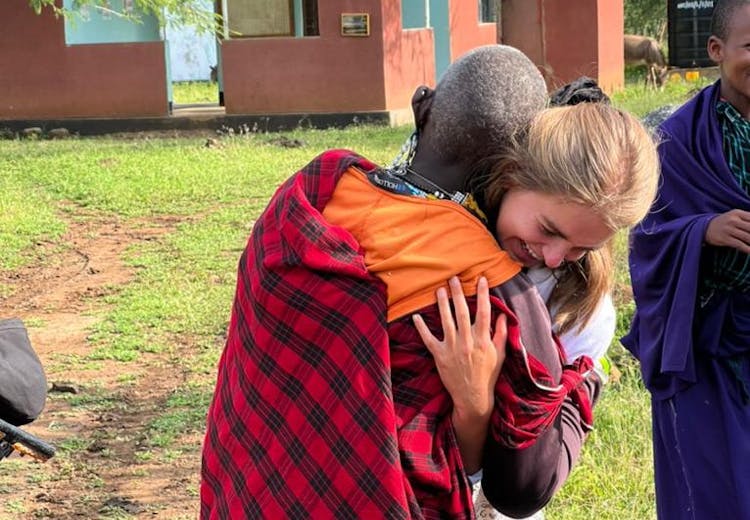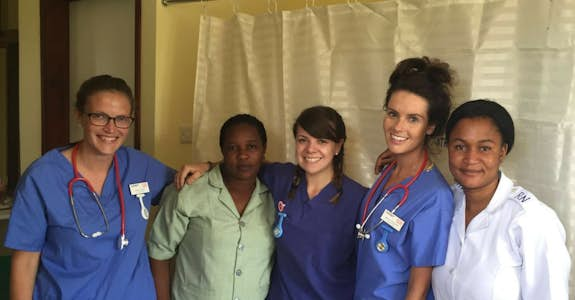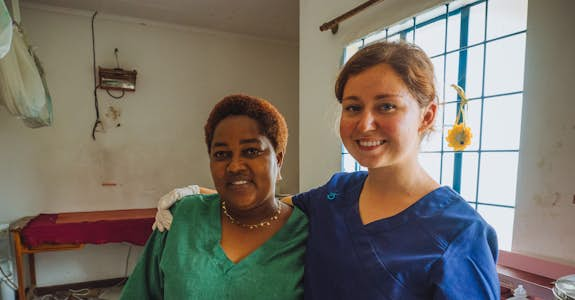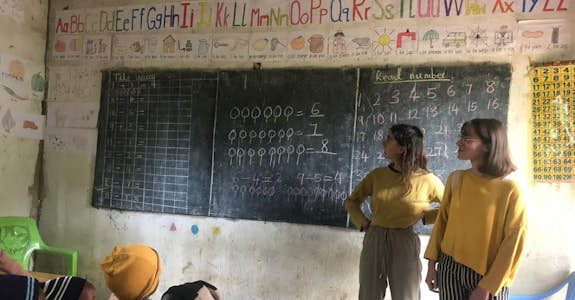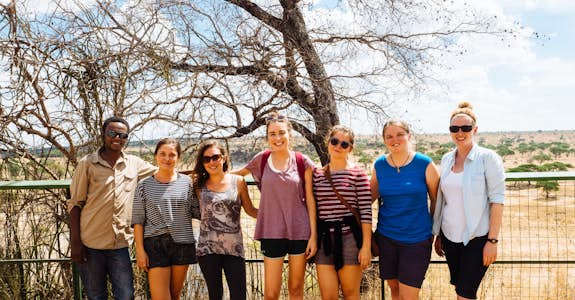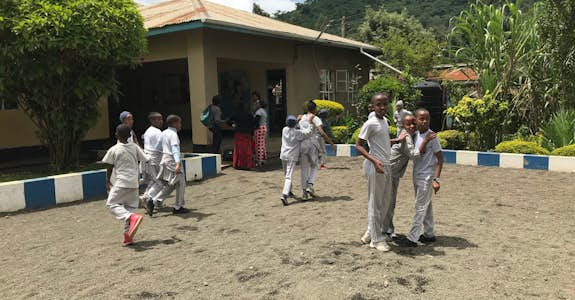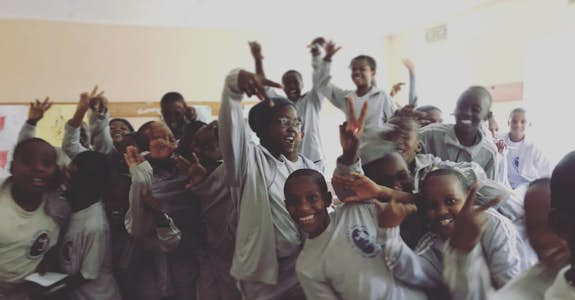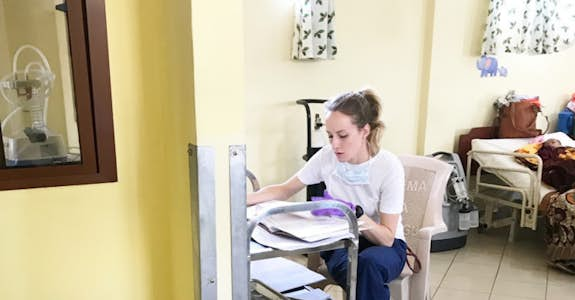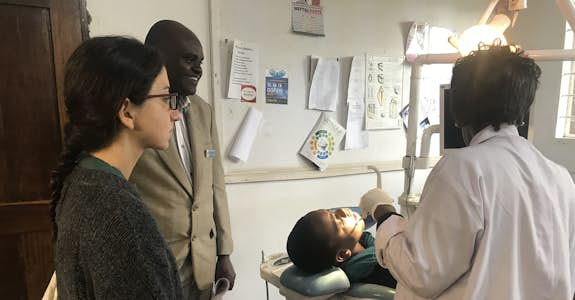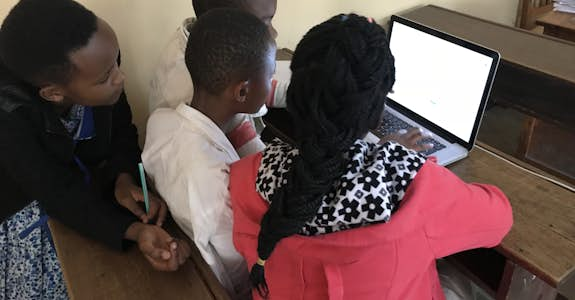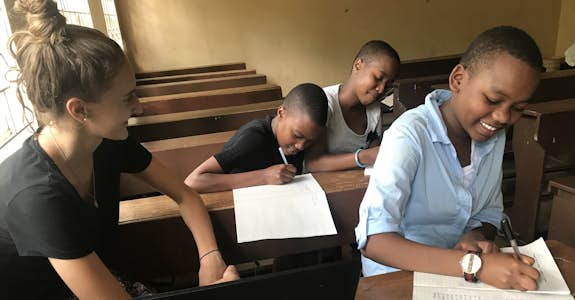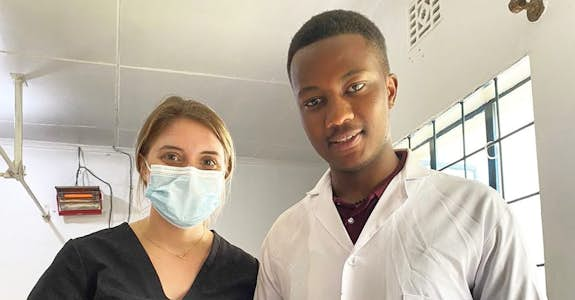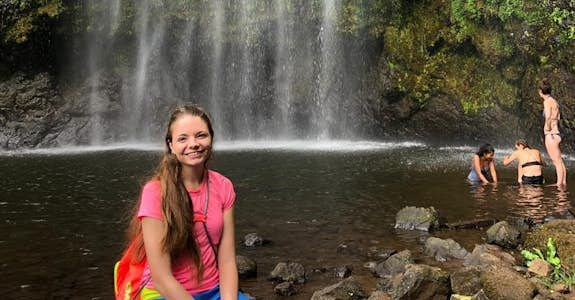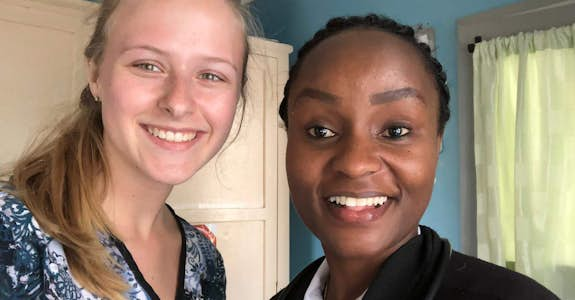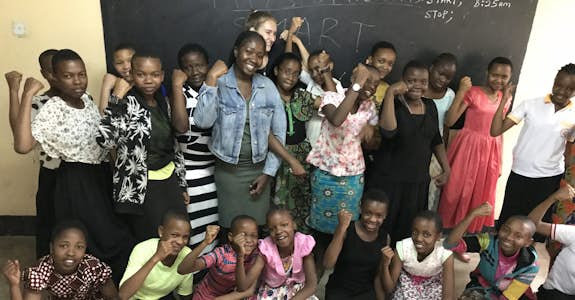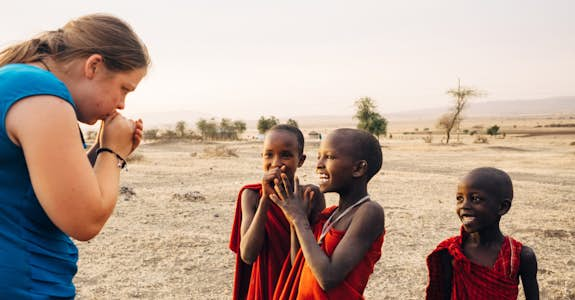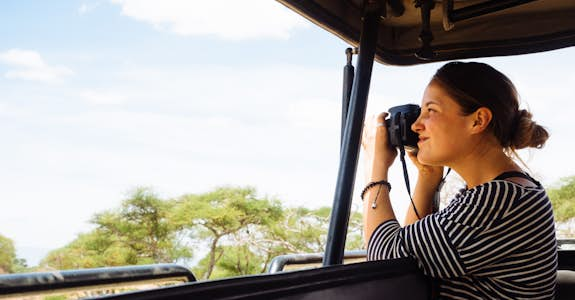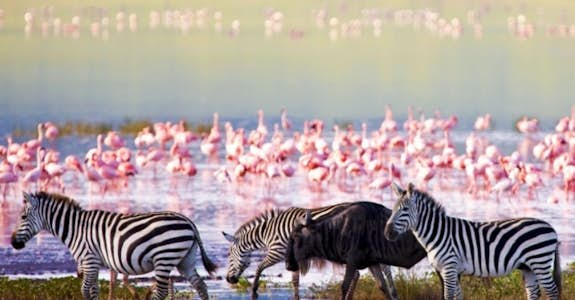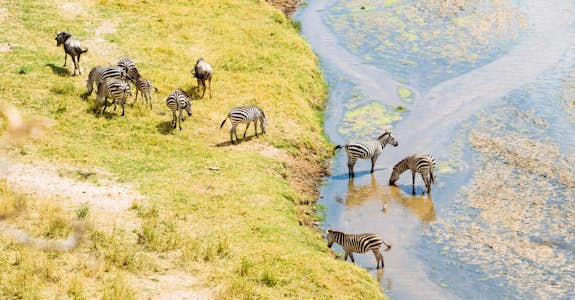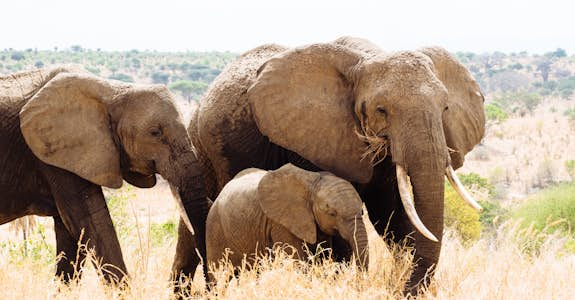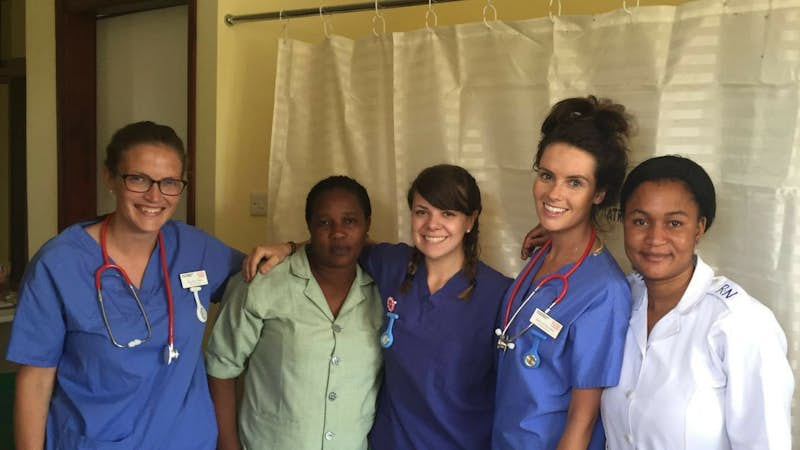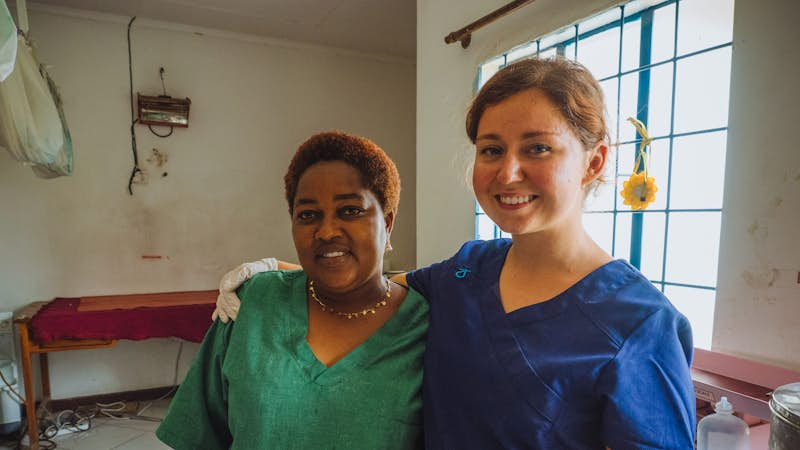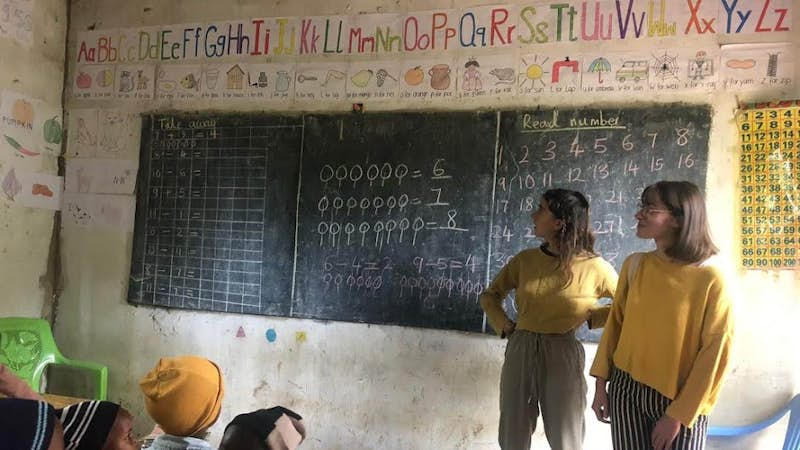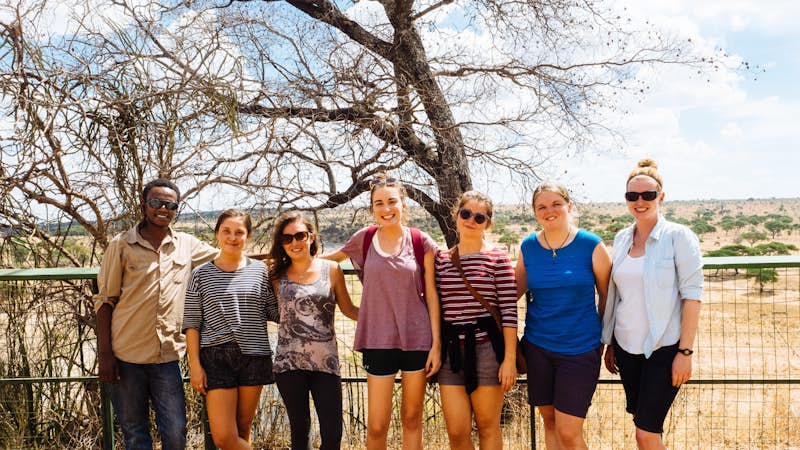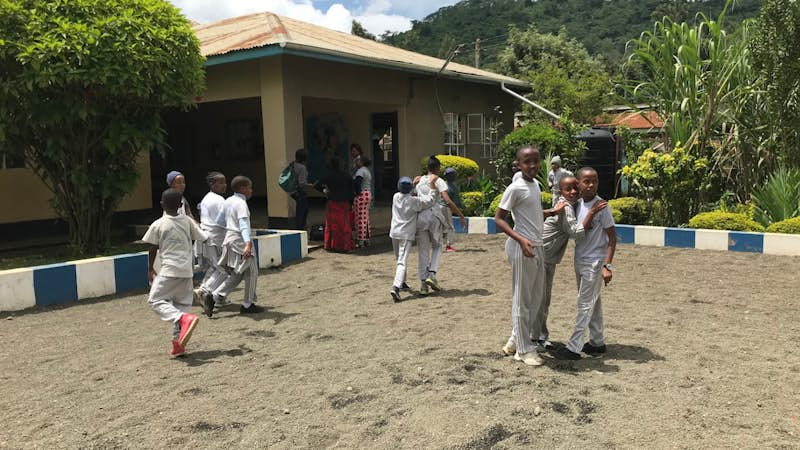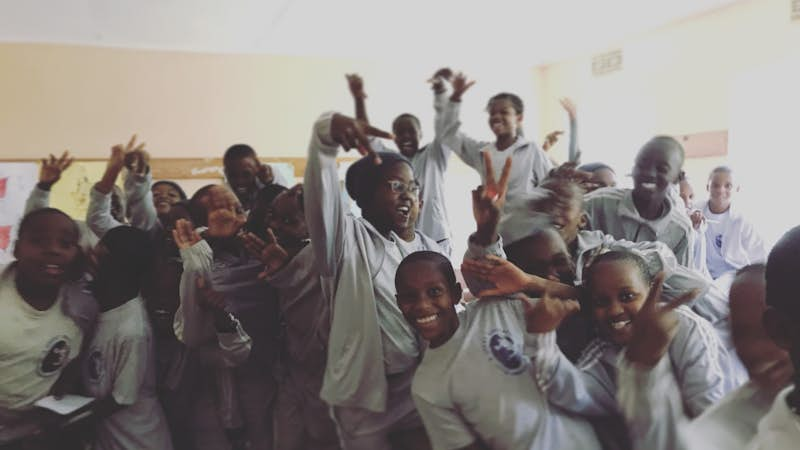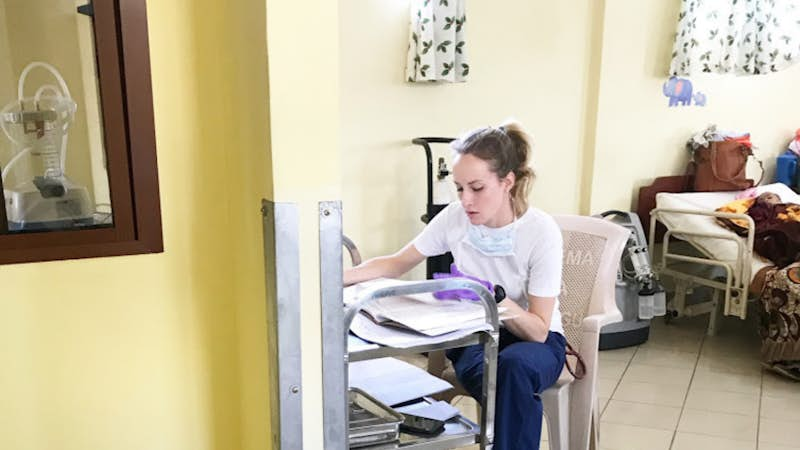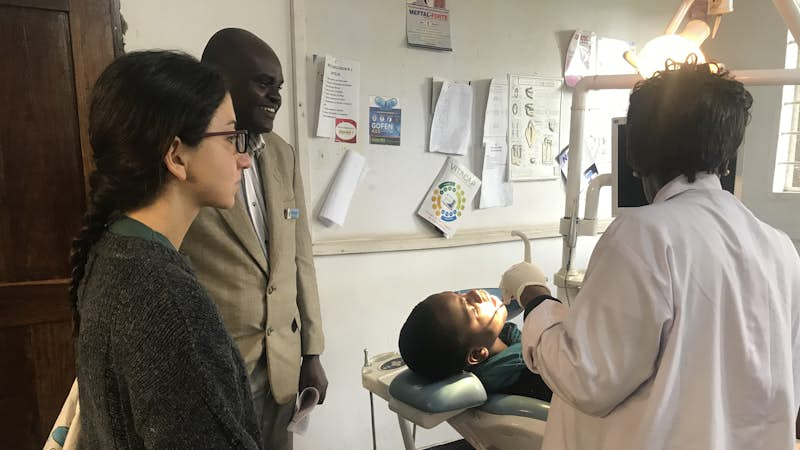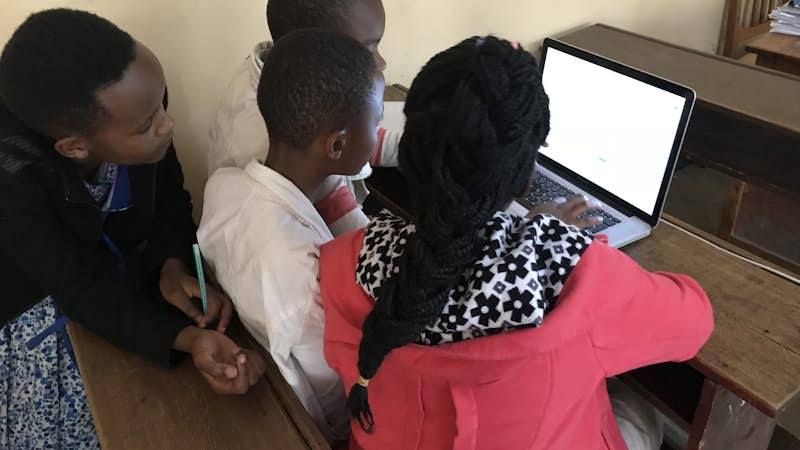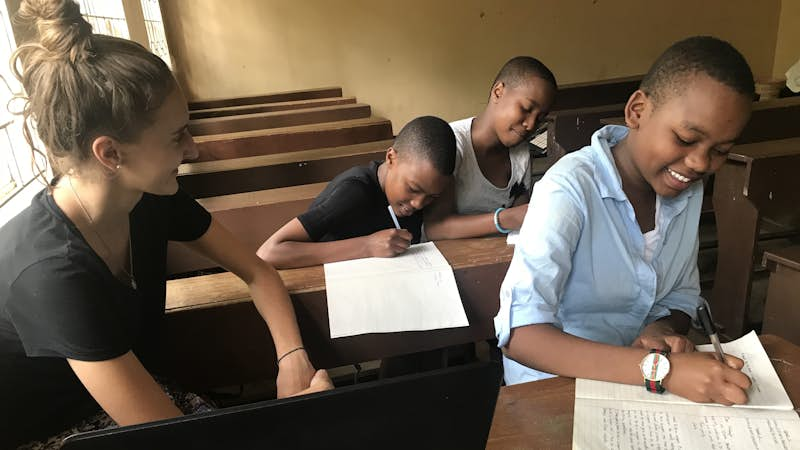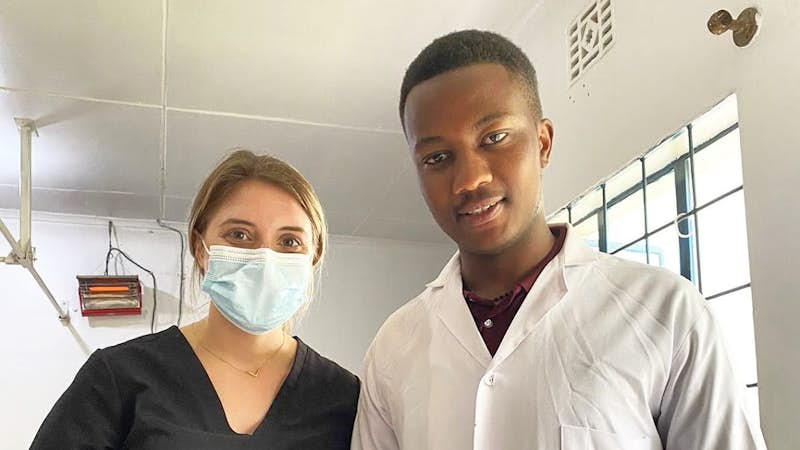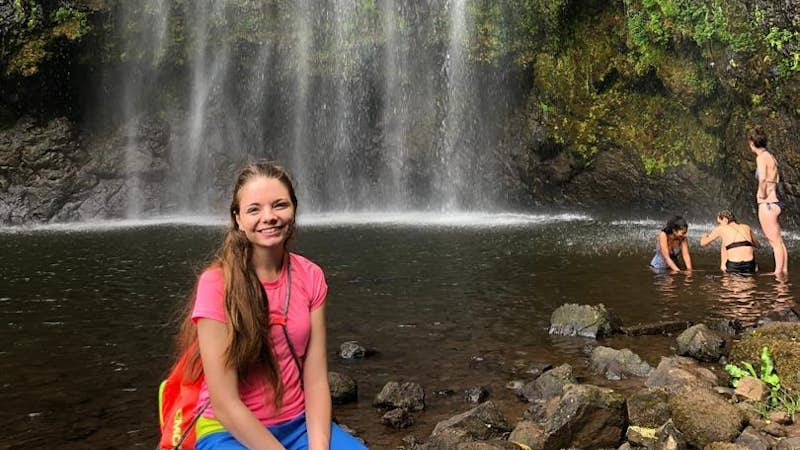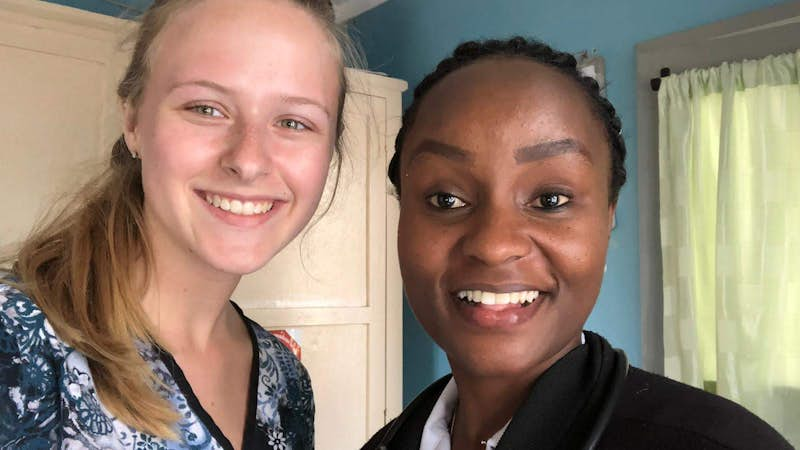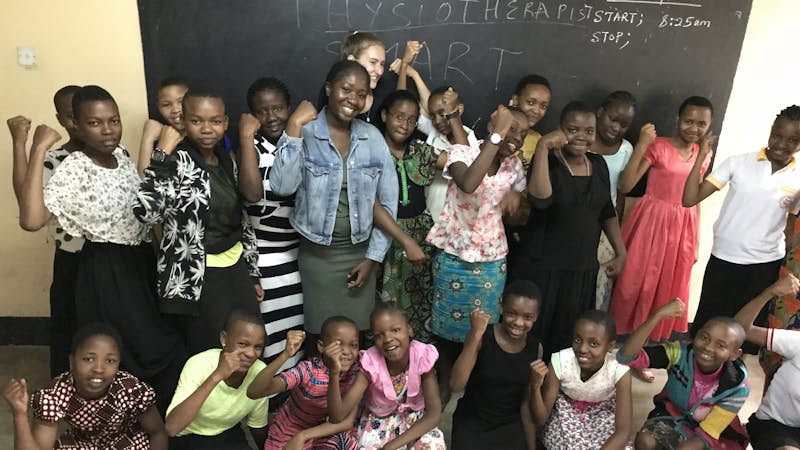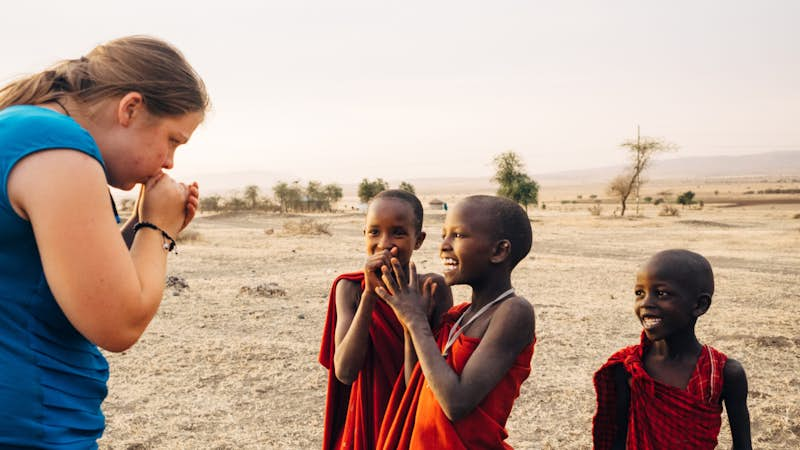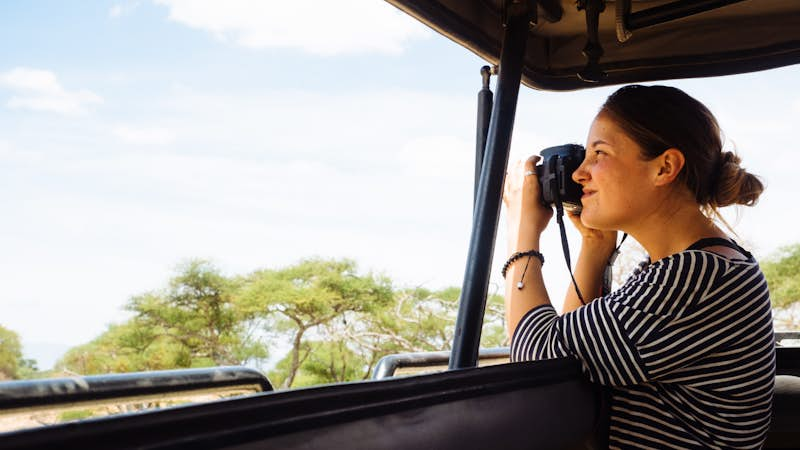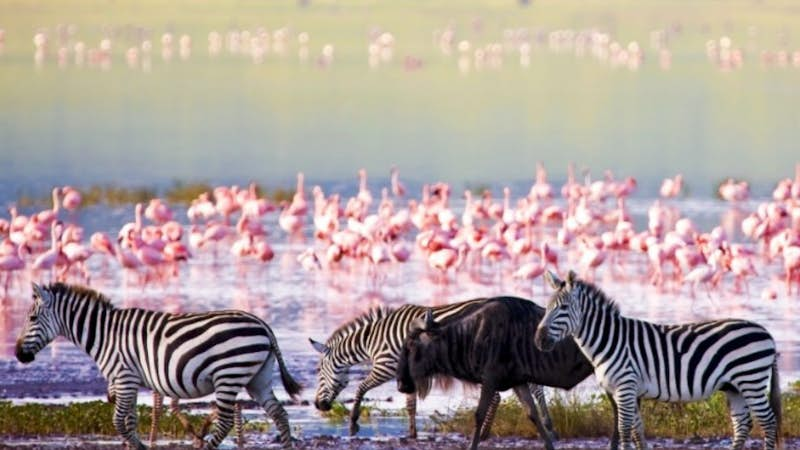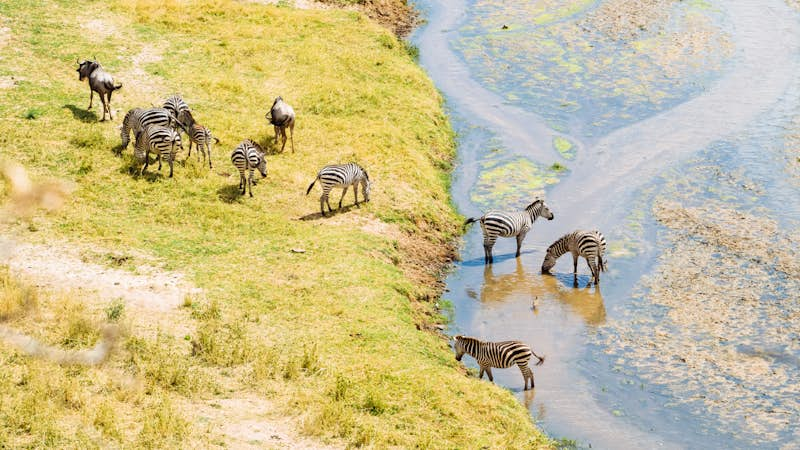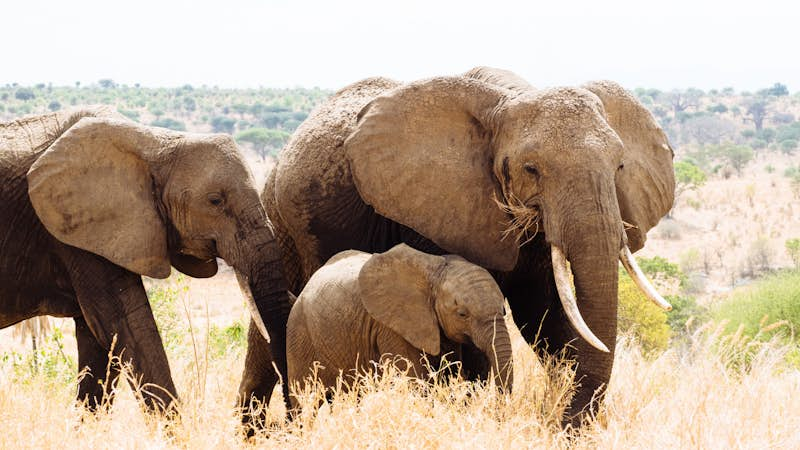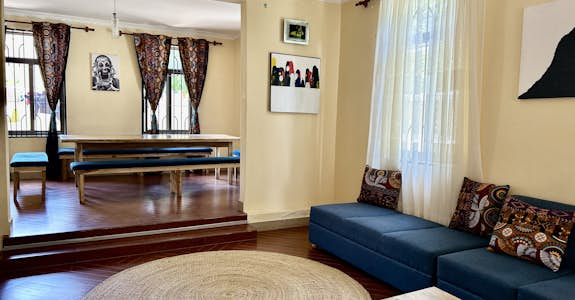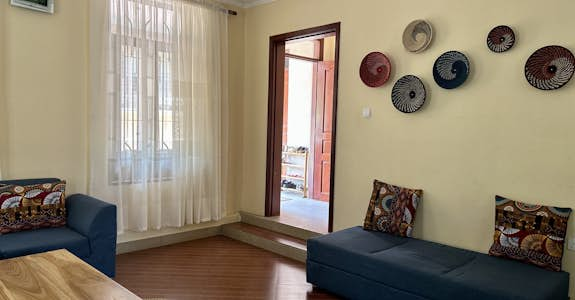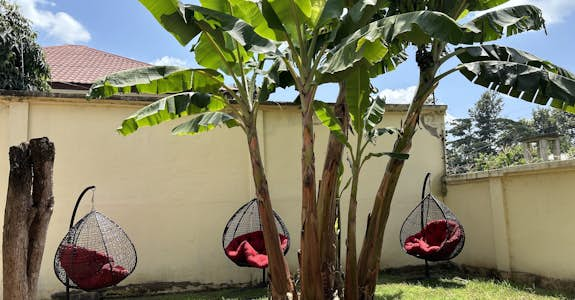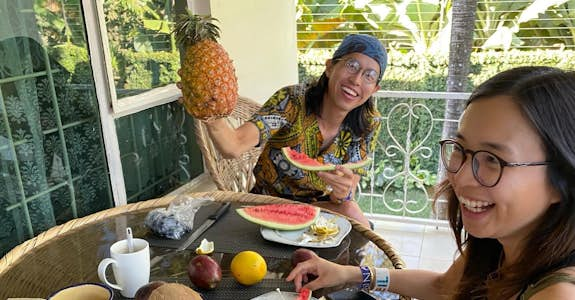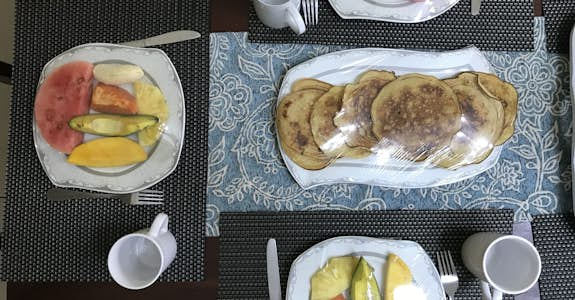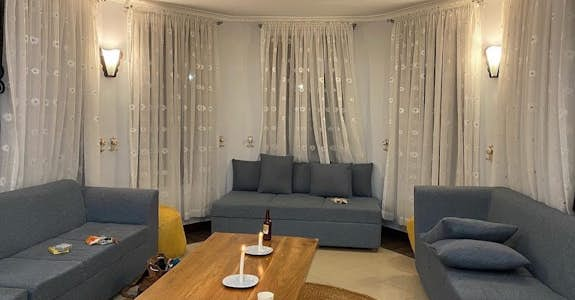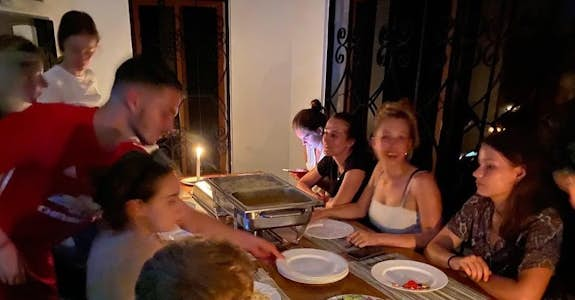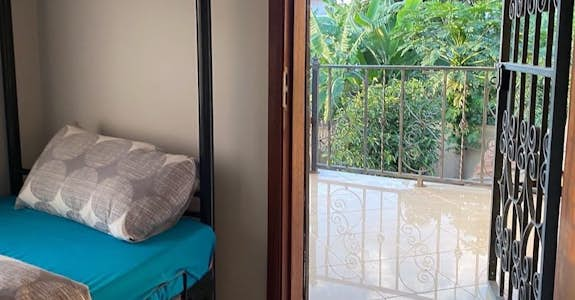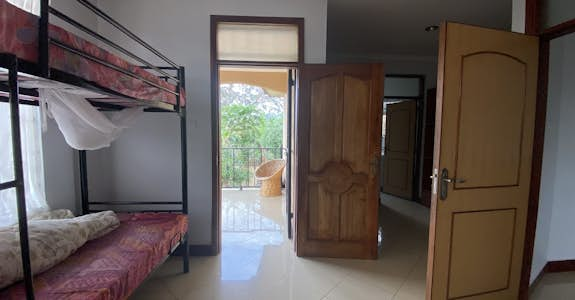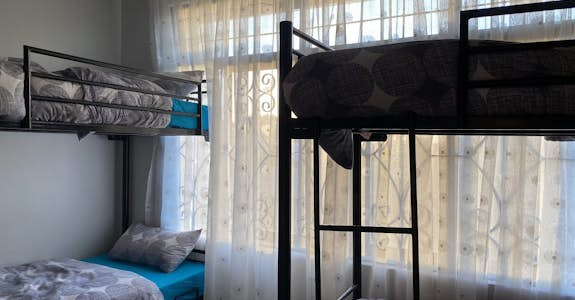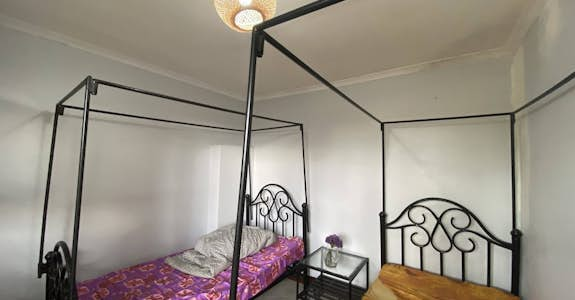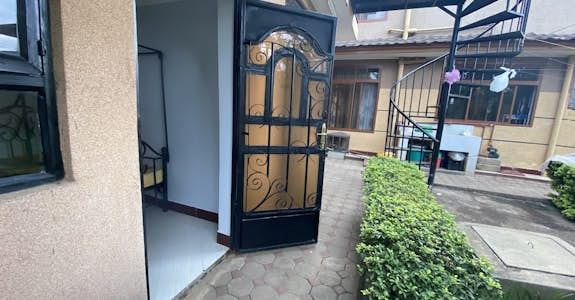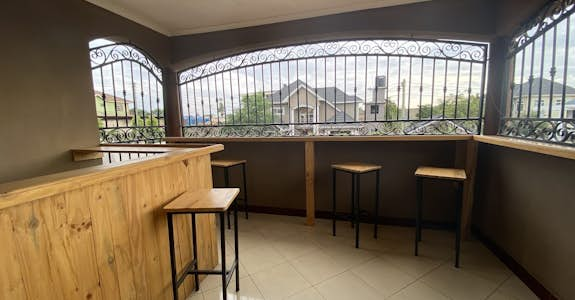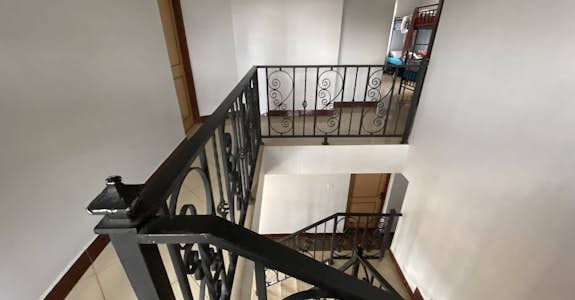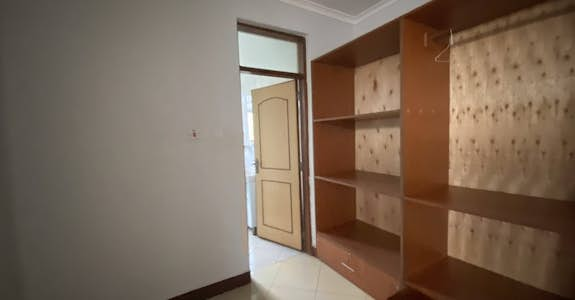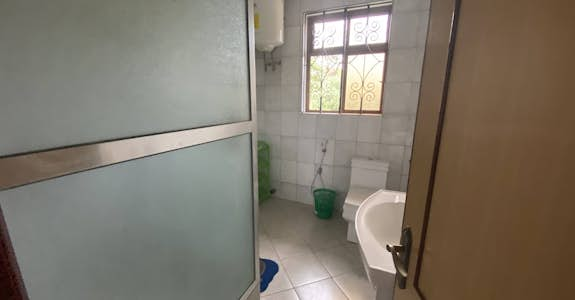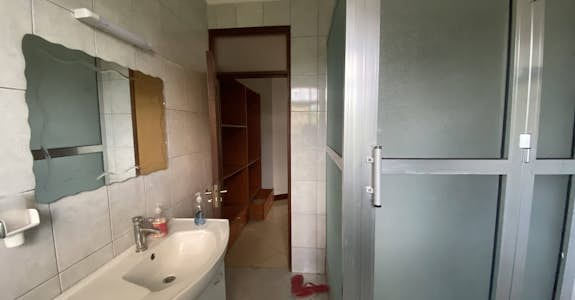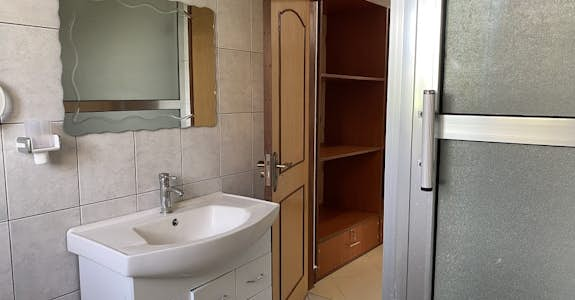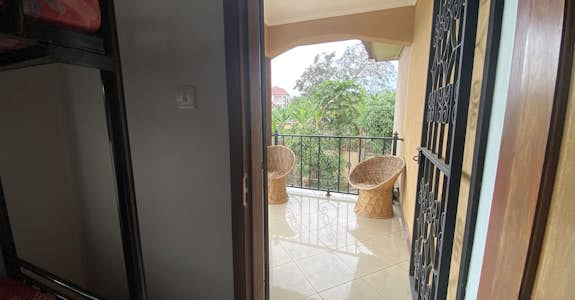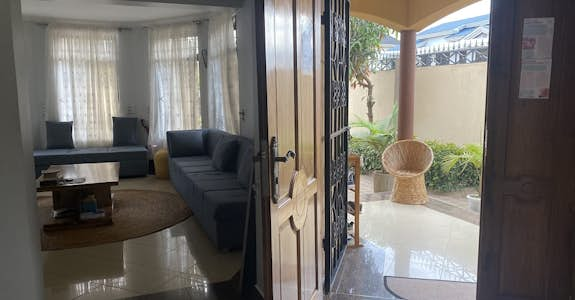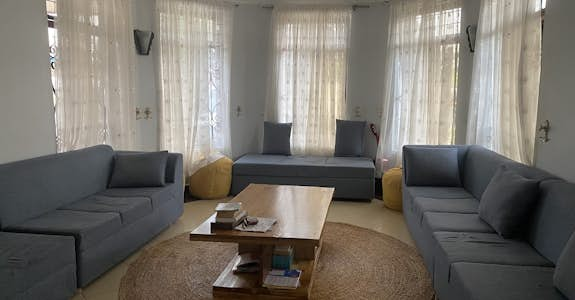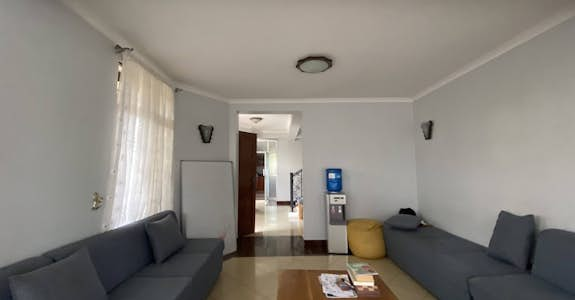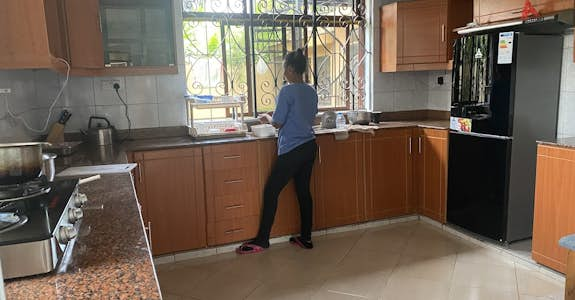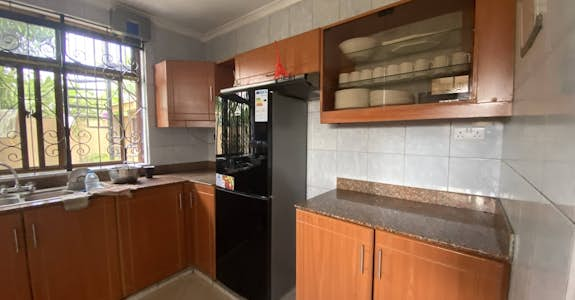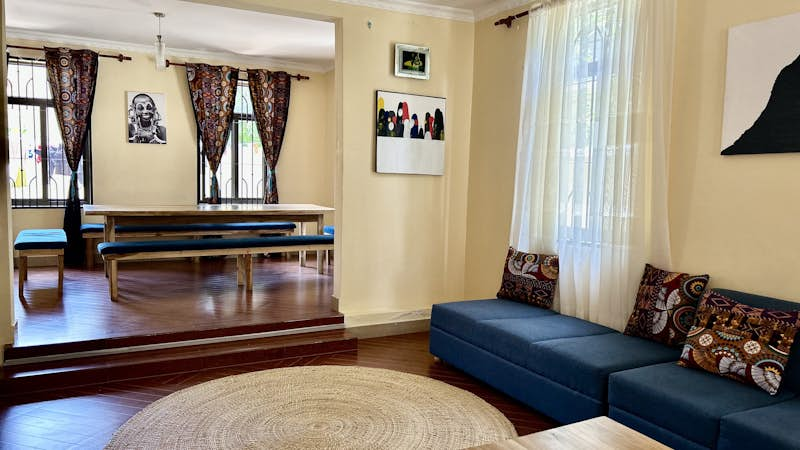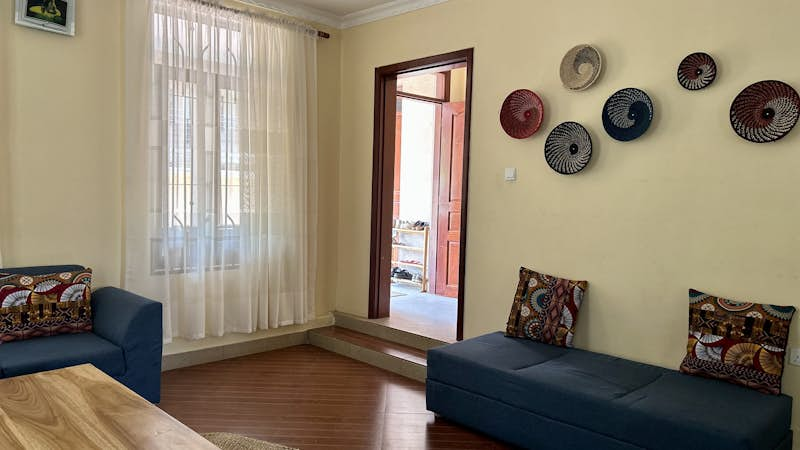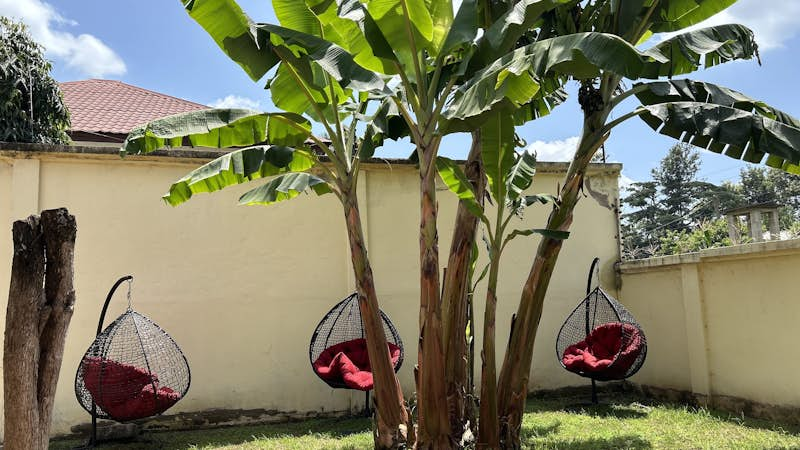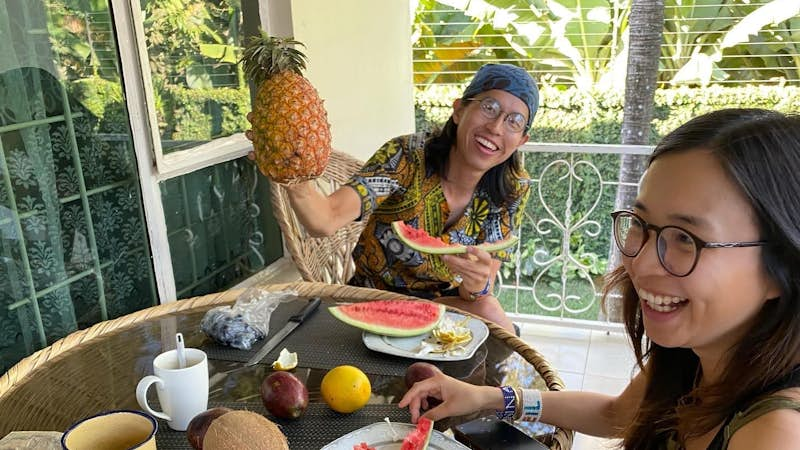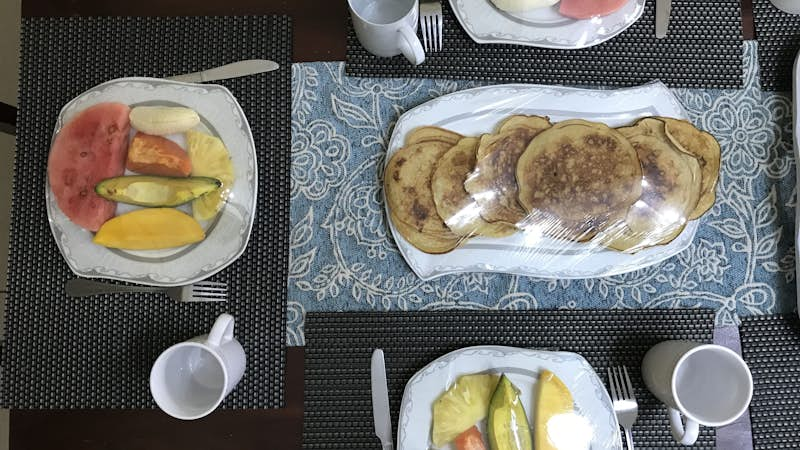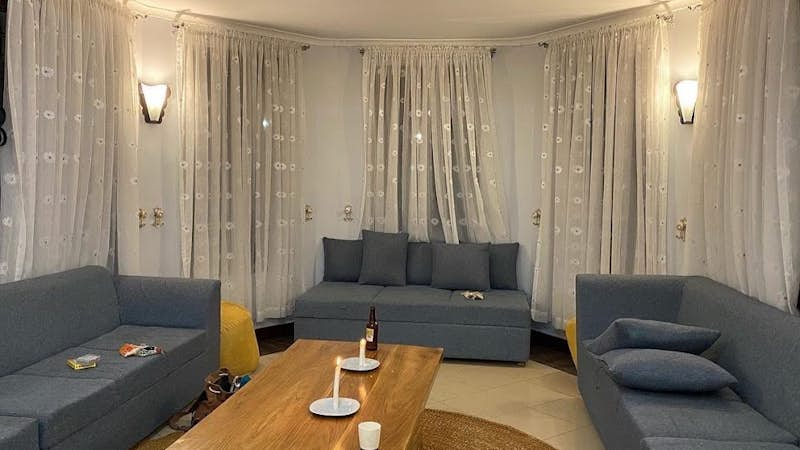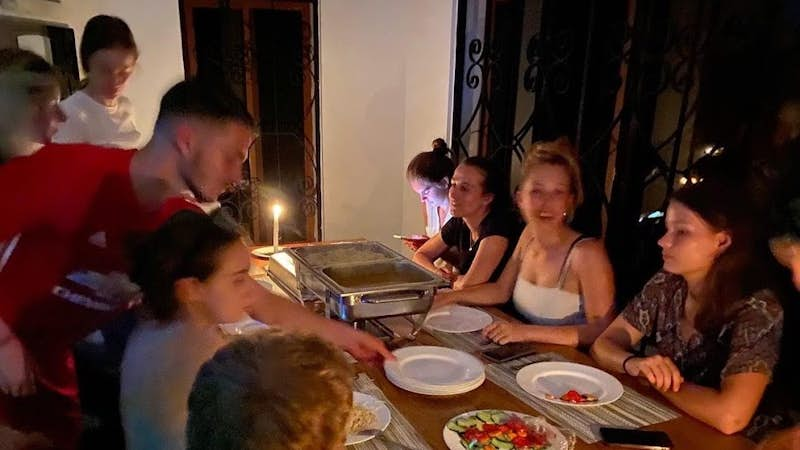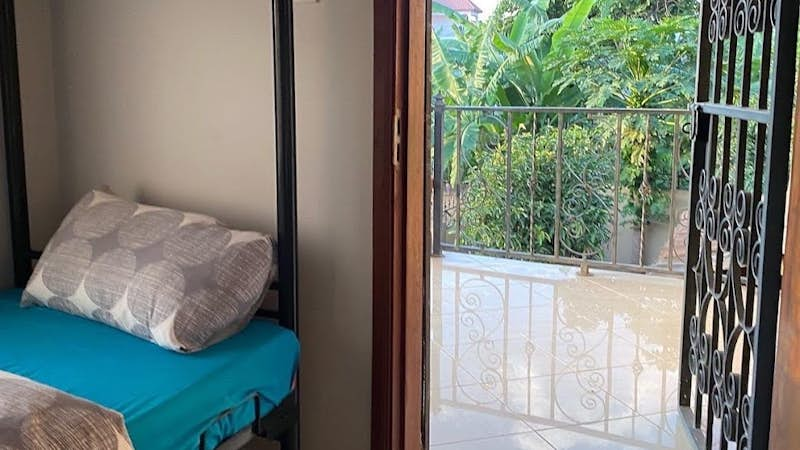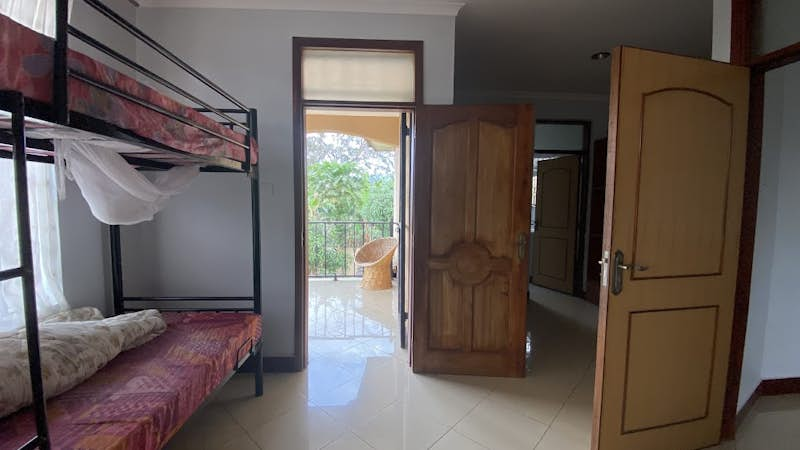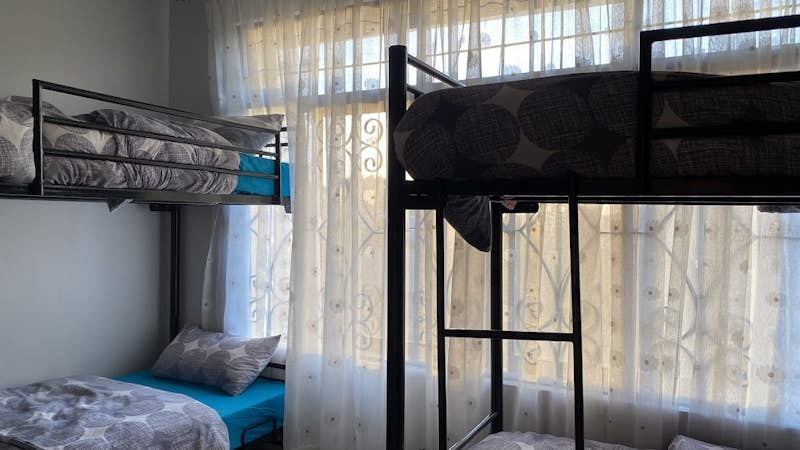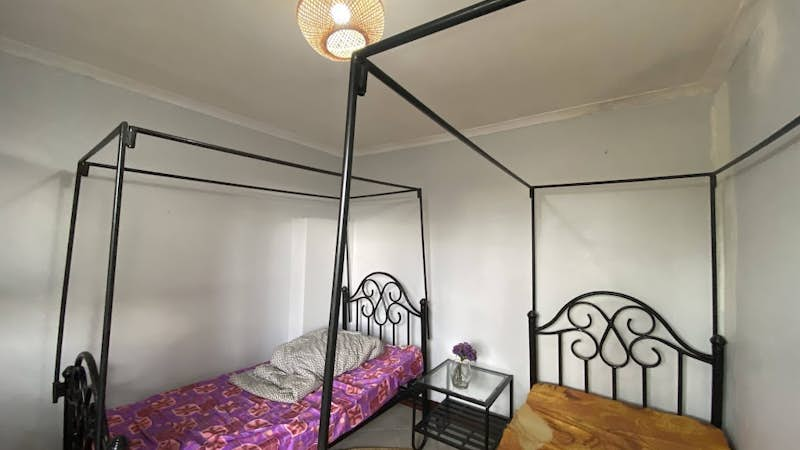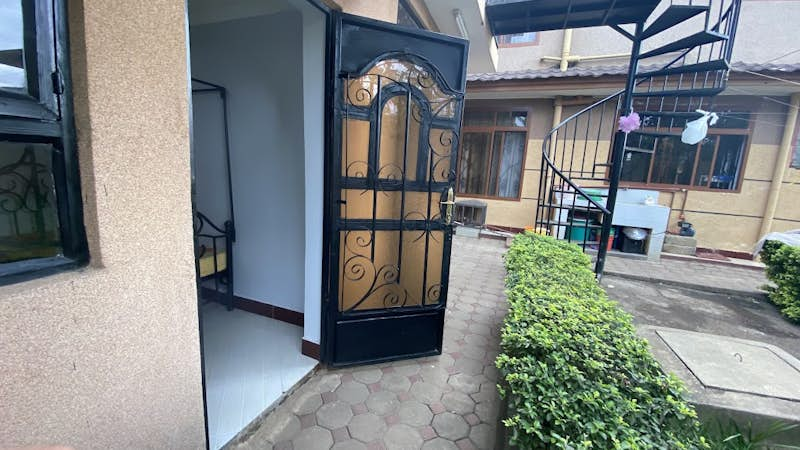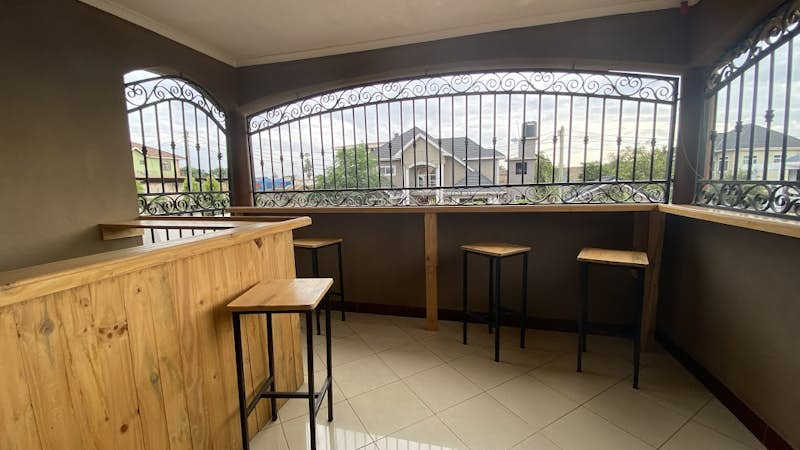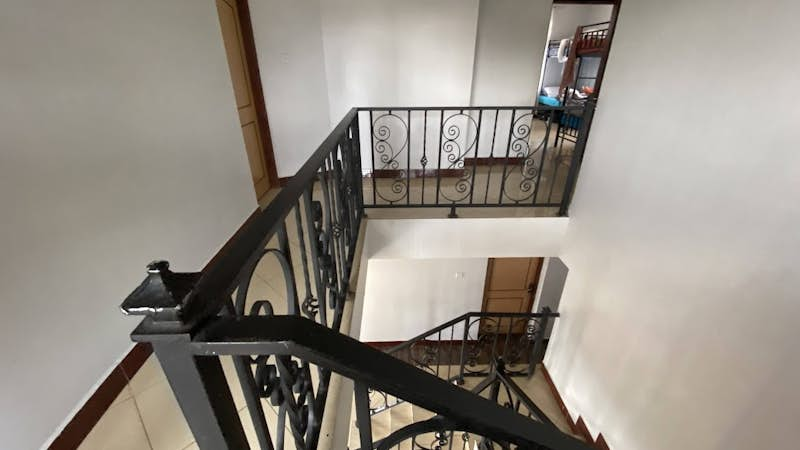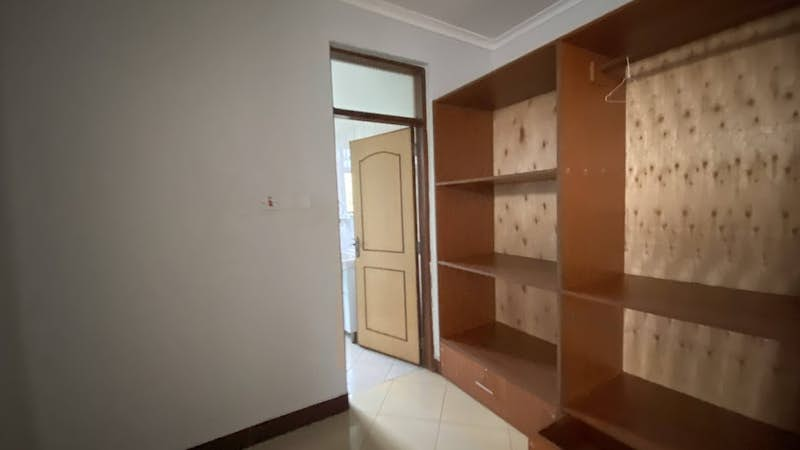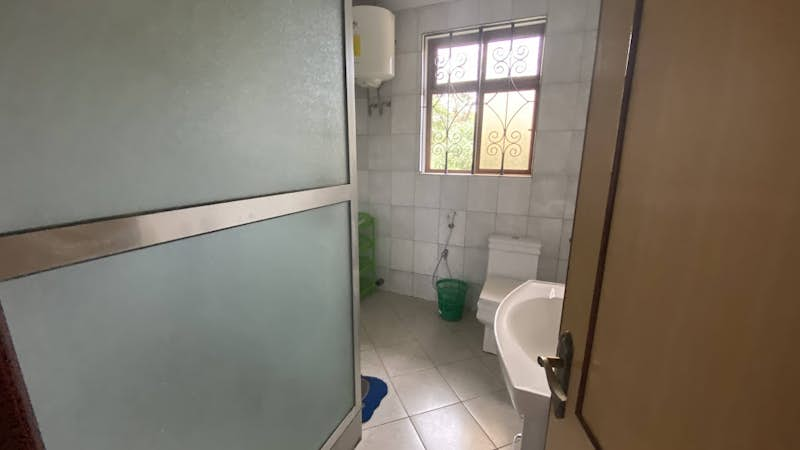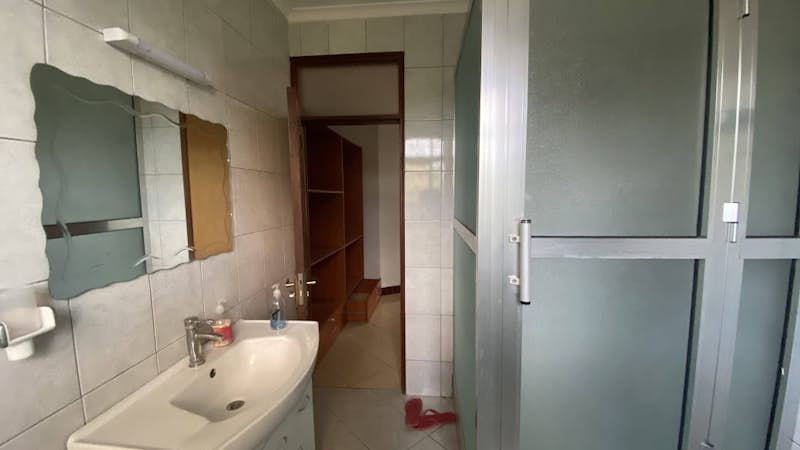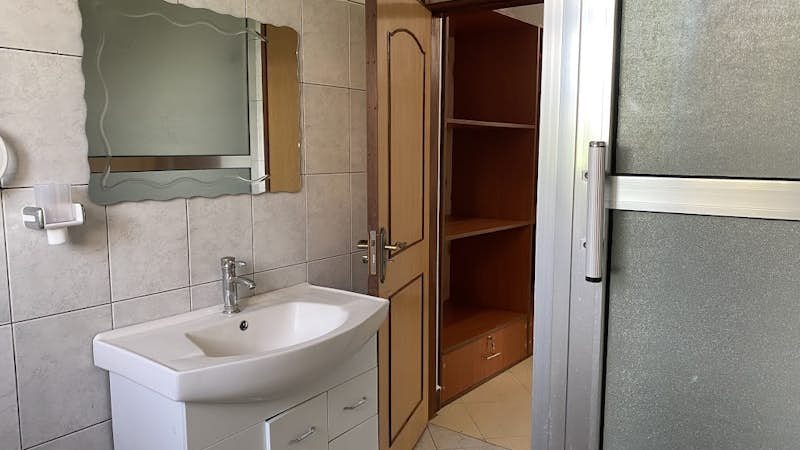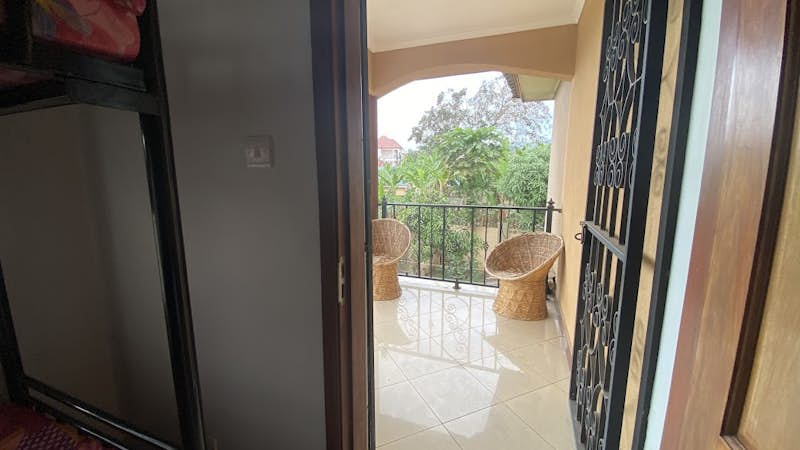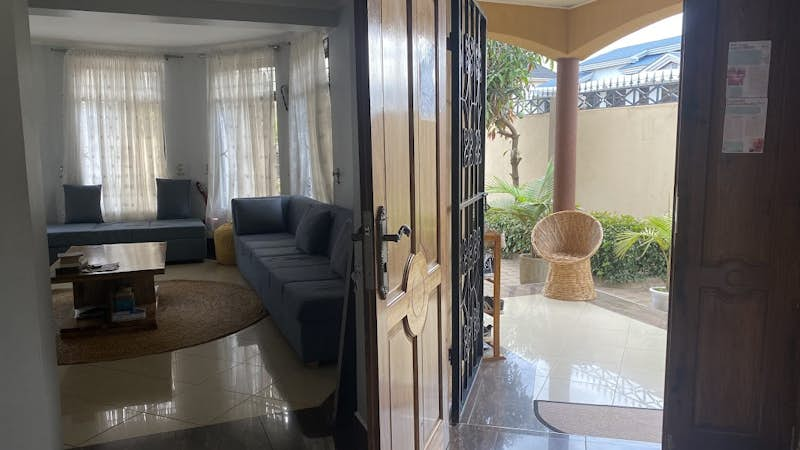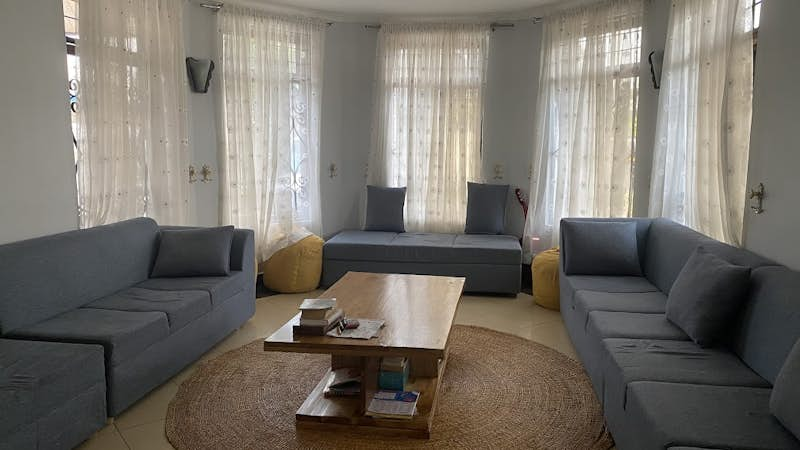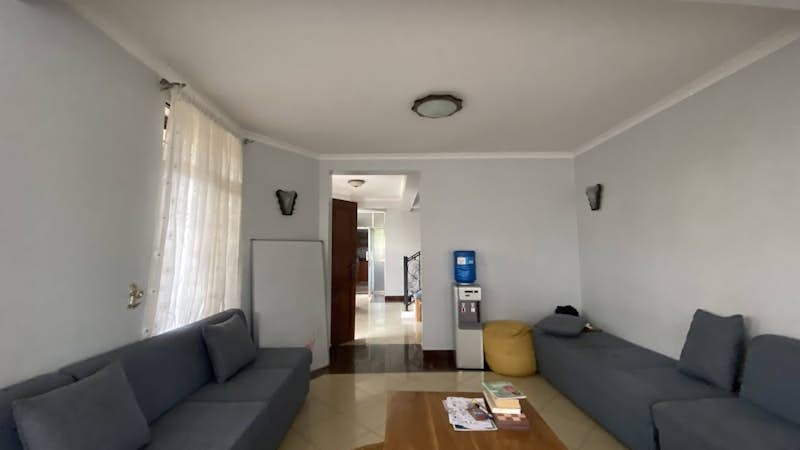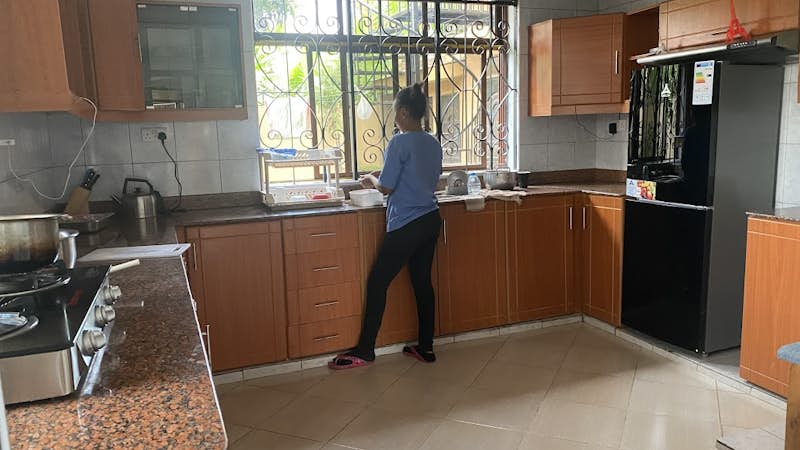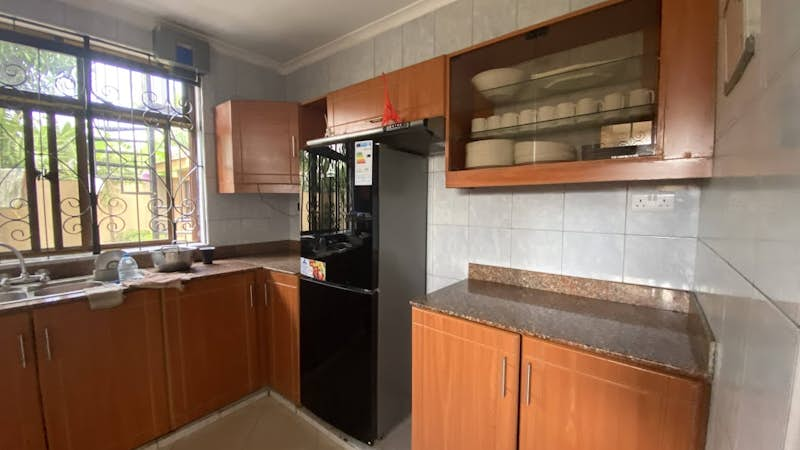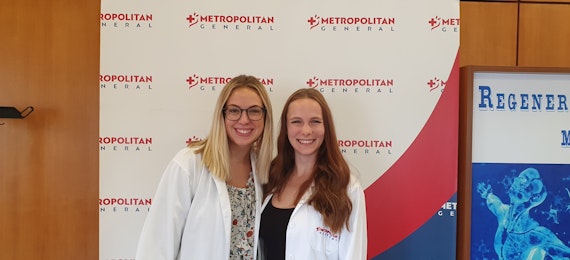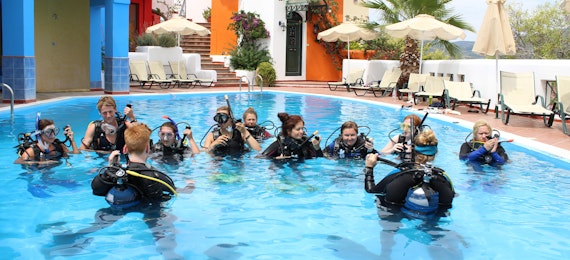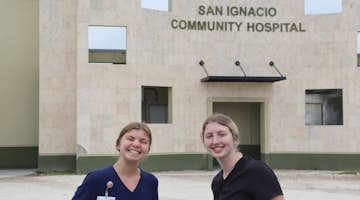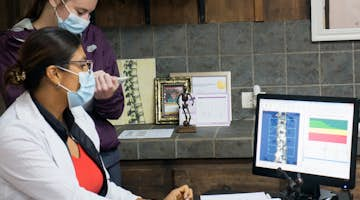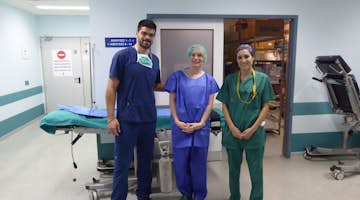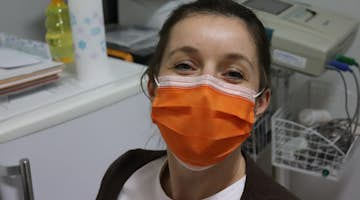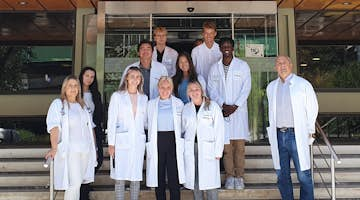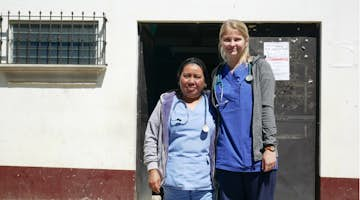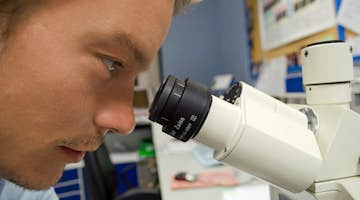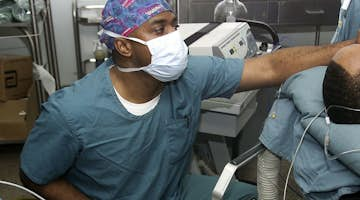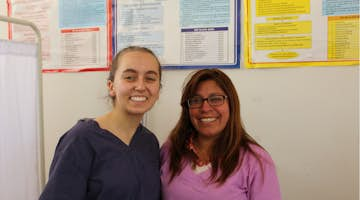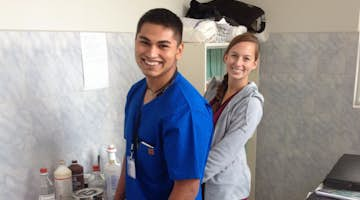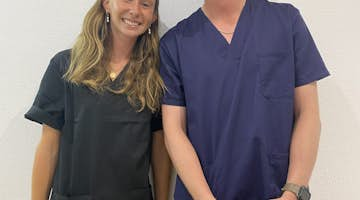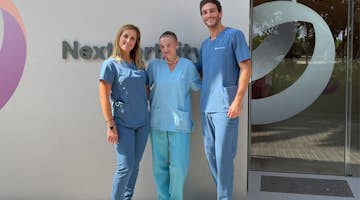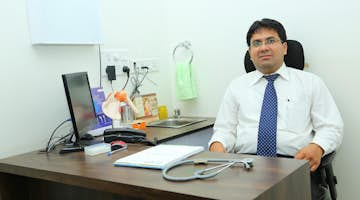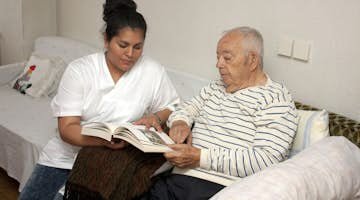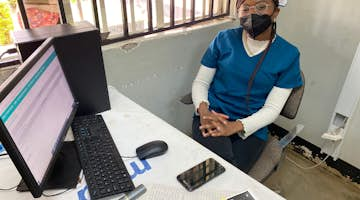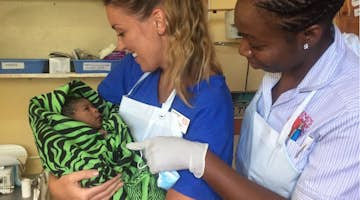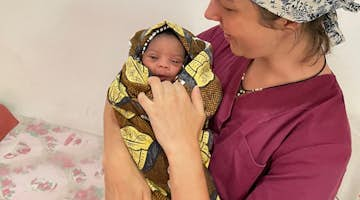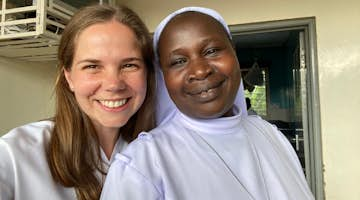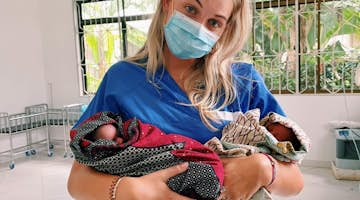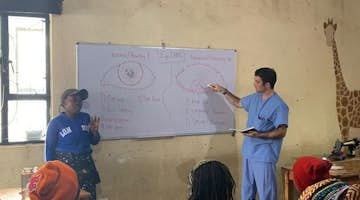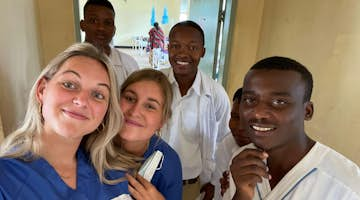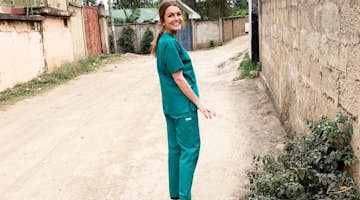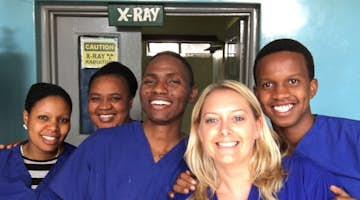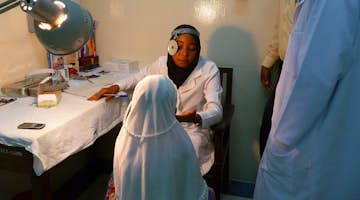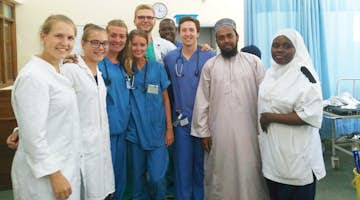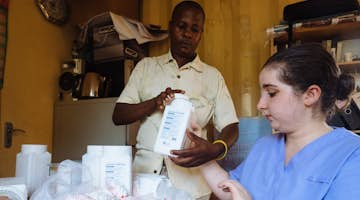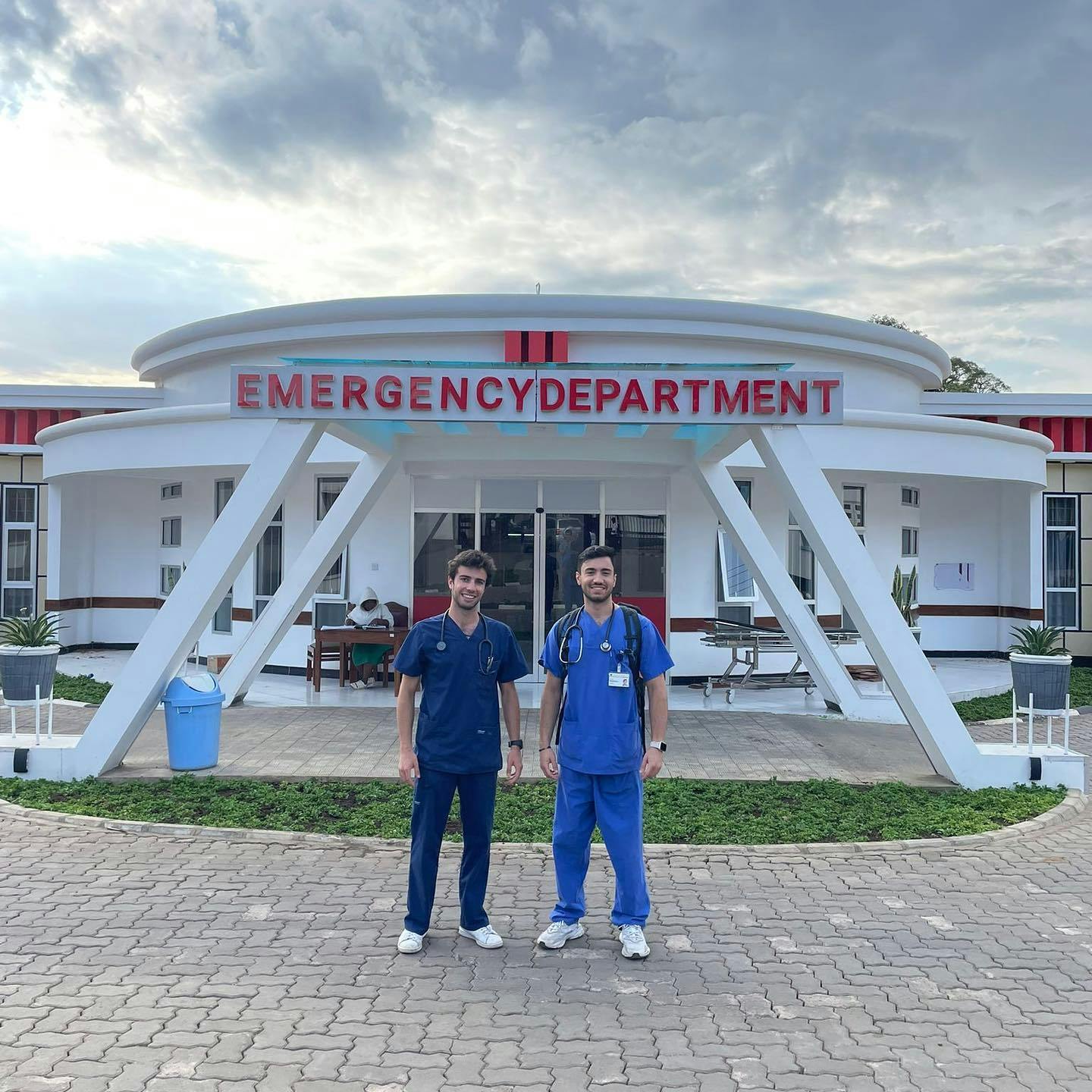
Emergency Medicine Internships in Arusha
This internship provides an incredibly rare opportunity for medical students to experience emergency medicine. Emergency Medicine interns are placed in hospitals and clinics in Arusha, and observe both simple and complex procedures being carried out. You’ll work closely with local professionals with trauma systems, International Red Cross and field experience all across Africa.
Internship Highlights:
- Learn how emergency and trauma medical teams work in Tanzania.
- Observe both simple and complex procedures being expertly executed by medical professionals.
- Gain practical healthcare skills and build your understanding in specific medical departments of interest to you.
- Enjoy spare time in Arusha, go on safari in the Serengeti, and explore world famous natural landscapes.
Type of host organizations:
- Public hospitals
- Emergency rooms
Internship details
This internship provides an incredibly rare opportunity for medical students to experience emergency medicine. Emergency Medicine interns are placed in hospitals and clinics in Arusha, and observe both simple and complex procedures being carried out. You’ll work closely with a range of medical professionals with trauma systems, International Red Cross and field experience all across Africa.
This is an in-country internship, with accommodation and meals provided.
As an Emergency Medicine intern in Tanzania, you’ll gain first hand understanding of the requirements of emergency medicine in an African environment. These internships are perfect for medical students looking to gain experience in emergency rooms and medical departments, which are often reserved only for experienced medical professionals.
Interns cater to the wider Tanzanian community, shadowing a range of medical professionals in departments whose patients suffer from acute or traumatic injuries or illnesses. You will learn how staff manage their patients, while navigating the challenges of being understaffed and under-resourced. Interns complete a fixed rotation gain an understanding of how emergency departments manage patients and staff in an unpredictable environment. You won’t be active in trauma treatments yourself, but you are able to reflect on procedures with doctors afterwards to learn about how they are carried out and ask questions.
Supervision on these internships is handled by a range of medical professionals. Interns must expect to work in a multidisciplinary team. Depending on your medical department and variations of your daily roster, this may include nursing teams, doctors, or other department heads. Such team members are in the best position to provide guidance, direction, and answer questions as it will pertain to current duties and responsibilities. Therefore, there is not one sole supervisor throughout, as interns interact with a range of local staff in various positions, deferring to their expertise and instruction. Outside of the placement supervision, interns additionally have access to support from the Program Director, who oversees placement allocation.
It’s important for medical interns to be prepared for a very different healthcare system than what you may be used to at home. Healthcare in Tanzania can be under-resourced and under-funded, and patients may endure conditions that would be considered rare or unacceptable in your own home country. While you may encounter culture shock, it is important to remain professional and compassionate at all times. You’ll be encouraged to consider your supervisor and in-country coordinator as valuable and knowledgeable resources and mentors. They’re in the best position to provide guidance and local context into the needs and challenges of the local community, and will be happy to support your learning experience throughout this internship abroad.
Due to the unpredictable nature of patient flow in clinics and hospitals, interns should note that the timing of treatments can be irregular. This means that there will be days which are very busy, as well as slower days if patient workload is lighter. Interns should be adaptable, proactive and willing to help where it’s needed. You will be welcome to discuss your schedule at all times throughout the internship, should you wish to pick up any extra hours. This is subject to availability and must always be discussed with your in-country coordinator, who would facilitate any necessary arrangements for you.
It is important to note that the internship placements grouped as “Medical” require interns to make a Ministry of Health contribution. This supports the operation of placements and covers supervision for interns on medical-related placements. This contribution is not included in the internship program fee; it must be made directly, in-country, under the direction and guidance of the Program Coordinator in Arusha. Interns will not be permitted to commence their placement until this has been covered. The amount of the Ministry of Health contribution varies, as it is not the same for every clinic/hospital. However, to cover the contribution sufficiently, we ask interns to budget up to US$75 per week.
In all cases, interns should expect that the first week of your experience will focus on settling in and gaining some introductory knowledge, as you will not “hit the ground running”. Rather, you should start with learning about the placement to gain an understanding of what you can build upon, develop, learn, and contribute. Ensure that you ask questions and provide feedback during the introductory period, so that your supervisor understands how you’re progressing. This will help them to better understand important details, such as how quickly you learn, what you find challenging, what you find interesting, etc.
Understand and expect that individual internship experiences vary, as the specific placement that you’re assigned will depend on review of your resume and your current level of studies and experience. Therefore, if you’re at a more introductory level, you should reasonably expect a more introductory internship. Likewise, if you’re interning for a shorter duration, you will have a different experience from someone who is interning for a longer duration. Placement preferences are considered but always subject to availability.
Typical Schedule
-
Schedules vary based on the exact nature of each internship. Interns should prepare to be flexible with their schedules, but expect between 6-8 hours of internship activities, Monday through Friday, including possible weekend work (optional).
Career Benefits
Emergency Medicine interns learn from a qualified and experienced supervisor, and can be involved in:
-
Shadowing and observing local professionals.
-
Attending simple and complex procedures.
-
Supporting medical professionals.
Professional development opportunities:
-
Experience pre-operational preparation and post-operative care.
-
Build your understanding of Emergency Medicine.
-
Supervision and guidance from practicing medical professionals.
-
Build your cultural intelligence, as it pertains to healthcare and cross-cultural communication.
-
Gain practical skills and boost your employability, with guidance from Intern Abroad HQ’s Experiential Learning Curriculum to support your learning and cultural intelligence.
Tanzania photo gallery
What recent interns said about their experience
My role as an intern involved taking patient vitals, filling out patient intake charts, triage observation, and/or grabbing medical equipment/resources when doctors are in need. I have learned how to take all patient vitals and monitor patients in the times between scans, bloodwork, payment, etc. This is very valuable for me as I have an interest in trauma and surgery. This internship role has greatly contributed to my long-term goals. I will attend medical school, and with my love of traveling, I hope to work with Doctors Without Borders later in my career. I would like to return to Tanzania in the coming years as well, and this experience has greatly prepared me for that. Specifically, I have learned a lot about patient intake and assessment in the ED, and with my interest in surgery and trauma, this internship has shown and taught me so much!
To read all reviews, visit our reviews page.
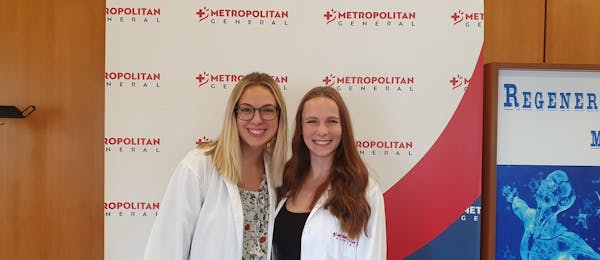
Academic credit available for all internships
Gain course credit from your college or university and meet your academic requirements when completing an internship abroad or remote internship program with Intern Abroad HQ.
Learn about course creditProgram fees
It’s free to apply for this internship. Once we have reviewed your suitability and accepted you onto this program, you’ll need to pay a deposit of US$499 to confirm your place. The remaining balance of your Program Fee (less your initial US$499 deposit payment) will be due no less than 60 days before your internship start date.
Duration |
Program Fee (USD) |
|---|---|
| 4 weeks | $1,804 Equivalent to $64 /day |
| 5 weeks | $1,909 Equivalent to $54 /day |
| 6 weeks | $2,014 Equivalent to $47 /day |
| 8 weeks | $2,279 Equivalent to $40 /day |
| 10 weeks | $2,489 Equivalent to $35 /day |
| 12 weeks | $2,699 Equivalent to $32 /day |
| 16 weeks | $3,299 Equivalent to $29 /day |
| 20 weeks | $3,859 Equivalent to $27 /day |
| 24 weeks | $4,419 Equivalent to $26 /day |
- Airport pick-up
- Daily breakfast and dinner
- Accommodation
- 24/7 in-country support
- Program orientation
- Dedicated support before, during, and after your internship
- In-country guidance for social and tourist activities
- Sourcing and securing your internship placement
- Personalization of your internship plan
- Coaching from your supervisor
- Documented portfolio of your experiential learnings
- Academic credit facilitation
- International reference letter
- Certificate of Internship Completion
- Lunches and weekend meals
- All in-country transportation
- Visa (if required), flights, travel insurance (mandatory), vaccinations, criminal background check
- Transfer back to the airport at the end of your internship program
- Personal spending money for snacks, drinks, public transport, laundry, and leisure activities during your free time.
- A deposit of $499 (approximately 499) is required to secure your internship
- It is important to note that the internship placements grouped as "Medical" require interns to make a Ministry of Health contribution. This supports the operation of placements and covers supervision for interns on medical-related placements. This contribution is not included in the internship program fee; it must be made directly, in-country, under the direction and guidance of the Program Coordinator in Arusha. Interns will not be permitted to commence their placement until this has been covered. The amount of the Ministry of Health contribution varies, as it is not the same for every clinic/hospital. However, to cover the contribution sufficiently, we ask interns to budget up to US$75 per week.
- Balance of your Program Fee is due 60 days before your internship start date.
- All payments attract a 5% transaction fee to cover international banking fees and currency charges.
- Terms and Conditions apply.
Free-time experiences & tours in Arusha
Take your internship to the next level with Intern Abroad HQ's affordable activity and tour add-ons in Arusha! Explore your options below and learn how to book them once you've been accepted onto an internship program.

In this tour you will visit two of the most popular destinations in Tanzania - Kilimanjaro Region. The tour starts and ends at Arusha, with experienced driver guides offering the trip of a lifetime!

Enrich your time in Tanzania with a visit to gain an authentic insight into the Maasai way of life.
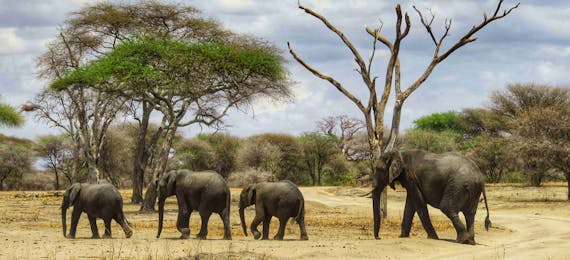
Visit three of the most popular destinations in Tanzania - Tarangire National Park, Ngorongoro Crater and Lake Manyara. The tour starts and ends at Arusha, with experienced driver guides offering the trip of a lifetime!
Arrival and Orientation
Internships in Tanzania begin every Monday. Exceptions may be made to this when start dates are shifted to avoid public holiday disruptions or closed when the program has already reached capacity. The minimum duration requirement is 2 weeks up to a maximum duration of 24 weeks.
Airport pick up and accommodation are included in the Program Fee. The accommodation is covered from the Sunday night before the Monday start date - interns are required to arrive no later than the Sunday before their Monday start date, as all orientations are held on Mondays.
Typical ports of entry include the local Arusha Airport (ARK) or the Kilimanjaro International Airport (JRO). If you are planning to spend time independently in Tanzania prior to your internship and will not require an airport pick up, we can discuss alternative arrival logistics with you.
Upon arrival, interns will be met, greeted, and transferred to the accommodation.
The last night of the accommodation is the Friday night of the final week, leaving interns free to depart on Saturday. Return transport to the airport will be provided to interns at no cost, provided they’re making their way back to the airport on either the Saturday or Sunday of their final week.
Extra nights of accommodation can be arranged in advance, if requested, and are subject to availability.
Orientation covers important details for your internship, including introductions, information about culture, customs, rules, expectations, safety, language lessons, cultural excursions, and more. Your specific internship placement orientation will follow the general orientation, as you’ll be shown how to travel to and from your internship and be introduced to the team you’ll be joining.
Please note that all participants are advised not to book flights until they have first registered to confirm their internship placement.
Check what’s required to visit Tanzania
Check out the widget below to find out what the Covid-19 restrictions and visa requirements are for Tanzania, based on your country of residence.
Accommodation and WiFi
Interns in Arusha are accommodated together on one of the city’s most top-rated guest houses, located in a quiet and friendly neighbourhood (just 15 minutes from town center). Living is safe, clean, modern and comfortable, including 24/7 gated security, housekeeping, and a live-in local coordinator. (Laundry services are not included but can be arranged directly for a small fee). Amenities include hot showers, WiFi, and satellite television (in common areas). Interns can expect to share a bedroom with 1- 5 other guests, of the same gender. Bathroom facilities are shared. Private/en-suite room upgrades are subject to availability and must be arranged directly with the local team, once registered.
Please note that the accommodation pictured in the photo gallery of this webpage is provided as an example. Since we may work with more than one apartment (depending on capacity), the exact accommodation that you’re assigned may differ slightly from the photos. Rooms sizes, along with storage space, may also vary.
Meals
Internships in Arusha include breakfast and dinner, prepared and served Monday to Friday at the guest house accommodation. Typical dishes in Tanzania are influenced by seasonal produce and the dinner menu is usually set according to a weekly rotating schedule. For example, dinner meals may cover Wali Rosti (rice and meat stew), spaghetti bolognese, Wali Umboga (rice and vegetables), pilau, and chapati maharage (a thin wholemeal pancake cooked on a griddle, with beans). Dinner dishes are accompanied with salad. Breakfasts consist of fresh seasonal fruit, fried eggs, and bread with spreads (plus tea and coffee). A filtered cold water dispenser is available in the common area for use to reduce the amount of plastic bottle use. Bottled water is readily available in Tanzania and volunteers should budget approximately US$5 per week for this (2 liters per day). Please be sure to let us know of any specific dietary requirements that you have in advance (i.e. allergies and intolerances), so that we may ensure your hosts are aware and make recommendations to you accordingly. However, it is important to note that the provided meals will not reflect what you are used to eating at home and flexibility is required. Interns are encouraged to budget extra spending money for any special snacks/treats.
Essential country information
| Capital | Dodoma |
| Population | 47.78 million |
| Languages | Swahili and English |
| Currency | Tanzanian Shilling (TZS) |
| Time zone | UTC+03:00 |
Weather and climate:
In Arusha, where the Tanzania internship programs are based, the warm season typically lasts from January till late March. During this period, the average daily high is around 81°F / 27°C. The cooler season is from mid May till late August and the coldest month of the year is usually in July, when the low reaches around 56°F / 13°C. The dry season is considered to run from late May through till mid November. Rainfall can occur during the rest of the year, December through April.
